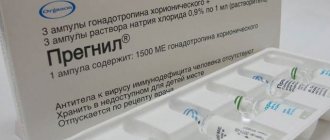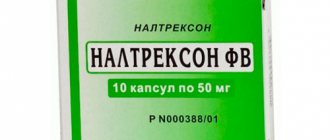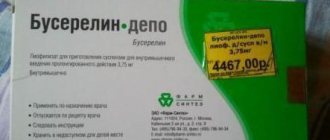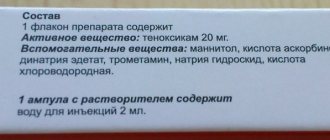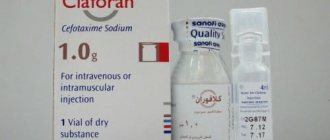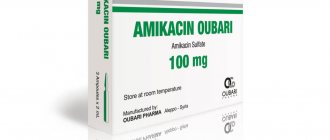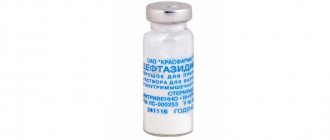Risperpet
From the nervous system: insomnia, agitation, anxiety, headache, sometimes - drowsiness, fatigue, dizziness, decreased ability to concentrate, blurred vision, rarely - extrapyramidal symptoms (tremor, rigidity, hypersalivation, bradykinesia, akathisia, acute dystonia) , mania or hypomania, stroke (in elderly patients with predisposing factors).
In patients with schizophrenia - hypervolemia (either due to polydipsia or due to the syndrome of inappropriate ADH secretion), tardive dyskinesia (involuntary rhythmic movements, mainly of the tongue and / or face), neuroleptic malignant syndrome (hyperthermia, muscle rigidity, instability of autonomic functions, impaired consciousness and increased levels of CPK), thermoregulation disorders, epileptic seizures.
From the digestive system: constipation, dyspepsia, nausea or vomiting, abdominal pain, increased activity of liver transaminases, dry mouth, hypo- or hypersalivation, anorexia, increased or decreased body weight.
From the cardiovascular system: sometimes - orthostatic hypotension, reflex tachycardia or increased blood pressure.
From the hematopoietic organs: neutropenia, thrombocytopenia.
From the endocrine system: galactorrhea, gynecomastia, menstrual irregularities, amenorrhea, weight gain, hyperglycemia.
From the genitourinary system: priapism, erectile dysfunction, ejaculation disorders, orgasm disorders, urinary incontinence.
Allergic reactions: rhinitis, rash, angioedema, photosensitivity.
From the skin: dry skin, hyperpigmentation, itching, seborrhea.
Other: arthralgia.
Overdose. Symptoms: drowsiness, sedation, tachycardia, decreased blood pressure, extrapyramidal disorders, rarely - prolongation of the QT interval.
Treatment: ensure an open airway to ensure adequate oxygen supply and ventilation, gastric lavage (after intubation, if the patient is unconscious) and the administration of activated charcoal along with a laxative. Immediately begin ECG monitoring to identify possible arrhythmias. There is no specific antidote. It is necessary to carry out symptomatic therapy aimed at maintaining the vital functions of the body. With a decrease in blood pressure and vascular collapse, administer intravenous infusion solutions and/or adrenergic stimulants. In case of development of acute extrapyramidal symptoms - anticholinergic drugs. Constant medical observation and monitoring should be continued until symptoms of intoxication disappear.
Behavioral therapy
Most experts, including Dr. Moyal, emphasize that the possible causes of aggressive behavior must be carefully considered when deciding whether to prescribe the drug. Behavioral problems can have many different causes, including undiagnosed anxiety disorder, ADHD, learning disabilities, psychological trauma, and medical problems. Treatment for these problems may be more effective in reducing unwanted behavior than an antipsychotic medication.
If the child's behavior has not yet reached the crisis stage, experts recommend correction based on applied behavior analysis as the first treatment, including teaching parents how to properly respond to problem behavior and engage in its prevention.
Dr. Moyal says she herself typically recommends behavioral therapy first, or a drug at the same time as behavioral therapy, depending on the level of risk.
Drug interactions
The combined use of Rispolept with certain drugs/substances can lead to the development of the following effects:
- drugs that prolong the QT interval, tricyclic/tetracyclic antidepressants, some antihistamines, other antipsychotics, some antimalarials, drugs that cause bradycardia, electrolyte imbalance or inhibit the hepatic metabolism of risperidone: interaction (the combination requires caution);
- paroxetine, fluoxetine: an increase in the plasma concentration of risperidone in plasma, and to a lesser extent - the concentration of the active antipsychotic fraction (when prescribing/discontinuing these drugs, the dose of Rispolept must be adjusted);
- antihypertensive drugs: development of severe arterial hypotension (noted in the post-marketing period);
- levodopa and other dopamine agonists: decrease in their effectiveness (if it is necessary to use a combination, especially in the terminal stage of Parkinson’s disease, the minimum effective doses of each drug must be used);
- verapamil: increased plasma concentrations of risperidone;
- other centrally acting drugs/substances, especially ethanol, opiates, antihistamines, benzodiazepines: increased likelihood of sedation (combination requires caution);
- carbamazepine and other inducers of liver enzymes and P-glycoprotein: a decrease in the plasma concentration of the active antipsychotic fraction of risperidone (when prescribing/discontinuing these drugs, the dose of Rispolept must be adjusted);
- tricyclic antidepressants, phenothiazines and some beta-blockers: increased plasma concentrations of risperidone;
- paliperidone: increasing the concentration of the active antipsychotic fraction (the combination is not recommended);
- ranitidine, cimetidine: increased bioavailability of risperidone, minimal effect on the concentration of the active antipsychotic fraction.
Contraindications
- phenylketonuria;
- hypersensitivity to the components of the drug.
Prescribing Rispolept requires caution in the presence of the following diseases/conditions:
- hypovolemia and dehydration;
- cerebrovascular accidents;
- diseases of the cardiovascular system (myocardial infarction, chronic heart failure, cardiac muscle conduction disorders);
- Parkinson's disease;
- convulsions, incl. in the anamnesis;
- severe renal or liver failure;
- drug dependence or drug abuse;
- conditions predisposing to the occurrence of tachycardia of the “pirouette” type (electrolyte imbalance, bradycardia, combined use with drugs that prolong the QT interval);
- Reye's syndrome, intestinal obstruction, brain tumor, cases of acute drug overdose (the antiemetic effect of the drug may hide the symptoms of these conditions);
- dementia with Lewy bodies;
- the presence of risk factors for venous thromboembolism;
- pregnancy;
- old age in the presence of cerebrovascular dementia.
Due to the lack of sufficient data, the use of Rispolept by pregnant and lactating women is possible after assessing the benefit-risk ratio.
Release form and composition
The following dosage forms of Rispolept are produced:
- Solution for oral administration: colorless, transparent (30 or 100 ml in dark glass bottles with a graduated pipette included; 1 set in a cardboard box);
- Film-coated tablets: biconvex, scored, oblong, with the inscription “Ris” on one side; 1 mg each - white, with the inscription “1” on the other side; 2 mg each - light orange, with the inscription “2” on the other side; 3 mg each - yellow, with the inscription “3” on the other side; 4 mg each - green, with the inscription “4” on the other side (10 pieces in blisters; 2 or 6 blisters in a cardboard box).
The composition of 1 ml of solution includes:
- Active ingredient: risperidone – 1 mg;
- Auxiliary components: purified water, sodium hydroxide, benzoic and tartaric acid.
1 tablet contains:
- Active ingredient: risperidone – 1, 2, 3 or 4 mg;
- Auxiliary components: colloidal silicon dioxide, magnesium stearate, microcrystalline cellulose, sodium lauryl sulfate, hypromellose 2910 15 mPa×s, corn starch, lactose monohydrate.
Composition of the tablet shell:
- White: propylene glycol, hypromellose 2910 5 mPa×s;
- Light orange: sunset yellow dye (E110), titanium dioxide, talc, propylene glycol, hypromellose 2910 5 mPa×s;
- Yellow: quinoline yellow dye (E104), titanium dioxide, talc, propylene glycol, hypromellose 2910 5 mPa×s;
- Green: indigo carmine (E132), quinoline yellow dye (E104), titanium dioxide, talc, propylene glycol, hypromellose 2910 5 mPa×s.
Directions for use and dosage
The solution or tablets are taken orally, regardless of food intake. It is recommended to use a solution when prescribing Rispolept in doses below 1000 mcg.
Dosage regimen for schizophrenia:
- Adult patients: initial dose – 2000 mcg per day, with a possible doubling the next day. From the moment the dose is increased, it should either remain at this level or, if necessary, be adjusted on an individual basis. In most cases, the optimal dose is 4000-6000 mcg of the drug per day. It should be borne in mind that in some cases lower initial/maintenance doses and slower increases may be justified. Use of the drug at a dose above 10,000 mcg per day does not provide greater effectiveness compared to lower doses, and may cause the development of extrapyramidal symptoms. Since the safety of Rispolept at doses above 16,000 mcg per day has not been studied, doses above this level should not be used;
- Children over 13 years of age: initial dose - 500 mcg 1 time per day (in the morning or evening), with a possible increase, if necessary, by 500-1000 mcg per day after 24 hours (at least) to 3000 mcg per day day (if the drug is well tolerated). Although the use of 1000-6000 mcg of the drug per day in adolescents showed effectiveness, no additional therapeutic effect was observed when using doses above 3000 mcg per day, and the risk of side effects increased. The use of the drug at a dose higher than 6000 mcg per day has not been studied;
- Elderly patients: initial dose – 500 mcg 2 times a day. On an individual basis, the dosage can be increased by 500 mcg 2 times a day to 1000-2000 mcg 2 times a day;
- Patients with persistent drowsiness: it is recommended to use ½ daily dose 2 times a day.
Dosage regimen for manic episodes associated with bipolar disorder:
- Adults: initial dose - 2000 mcg per day, with a possible increase of 1000 mcg per day after 24 hours (at least). The optimal daily dose in most cases is 1000-6000 mcg. The use of the drug at a dose higher than 6000 mcg per day has not been studied. As with any symptomatic treatment, the appropriateness of continuing to take the drug should be regularly assessed and confirmed;
- Children over 10 years of age: initial dose - 500 mcg 1 time per day (in the morning or evening), with a possible increase, if necessary, by 500-1000 mcg per day after 24 hours (at least) to 1000-2500 mcg per day (if the drug is well tolerated). Although the use of 500-6000 mcg of the drug per day in children has shown effectiveness, no additional therapeutic effect was observed when using doses above 2500 mcg per day, and the risk of side effects increased. The use of the drug at a dose higher than 6000 mcg per day has not been studied;
- Elderly patients: the dosage is similar to that used for patients of this age category in the treatment of schizophrenia;
- Patients with persistent drowsiness: it is recommended to use ½ daily dose 2 times a day.
The initial dose of Rispolept in cases of persistent aggression in dementia caused by Alzheimer's disease is 250 mcg 2 times a day. If necessary, on an individual basis, it is possible to increase the dose by 250 mcg 2 times a day (no more than every 1 day). The optimal dose in most cases is 500 mcg 2 times a day, but some patients are advised to take the drug 1000 mcg 2 times a day.
Duration of therapy – 42 days (no more). During treatment, the patient's condition and the need to continue taking the drug should be assessed on a regular basis.
Dosage regimen for persistent aggression in the structure of conduct disorder:
- Children aged 5-18 years with a body weight of 50 kg or more: initial dose – 500 mcg 1 time per day, with a possible increase, if necessary, by 500 mcg per day, no more than after 1 day. The optimal dose in most cases is 1000 mcg per day, but for some patients it is preferable to prescribe the drug at a daily dose of 500 mcg, or increase the daily dose to 1500 mcg;
- Children aged 5-18 years weighing up to 50 kg: initial dose – 250 mcg once a day, with a possible increase, if necessary, by 250 mcg per day, no more than after 1 day. The optimal dose in most cases is 500 mcg per day, but for some patients it is preferable to prescribe the drug at a daily dose of 250 mcg, or increase the daily dose to 750 mcg.
For liver and kidney diseases, the drug should be used with caution, in doses of ½ the recommended; Doses should be increased more slowly.
Due to the possible development of withdrawal syndrome, it is recommended to stop taking Rispolept gradually.
Tracking side effects
Children taking Rispolept or another atypical antipsychotic should be checked regularly by a doctor during treatment. Before starting the drug, you need to establish their initial height, weight, general health, prolactin, fat and blood sugar levels.
During the first few months of treatment with Rispolept or another atypical antipsychotic, prolactin levels should be measured frequently. If prolactin levels are elevated and symptoms of hyperprolactinemia appear, it is recommended to reduce the dose and switch the child to another drug. If the child does not have symptoms with elevated prolactin levels, it is recommended that the child be examined annually if the child is planned to take the drug for an extended period of time, since the possible effect of prolonged elevated prolactin levels on fertility and bone development is unknown.
A team of Canadian researchers previously noted that blood tests and a physical examination of a stable patient may be perceived as a waste of time by busy doctors. However, given the possible negative consequences, they believe: “If the doctor is not willing to regularly examine the child for side effects, then he should not prescribe these drugs.”
Alternative drugs
In relatively stable situations, Dr. Moyal also prefers drugs with a more precise action than Rispolept, which have fewer side effects. For example, if a child has ADHD, stimulants (Ritalin or Adderall) or non-stimulant ADHD medications, such as clonidine or guanfacine, may reduce impulsive aggression. If your child has obsessive-compulsive disorder, antidepressants (SSRIs) can reduce the depression or anxiety that triggers outbursts.
Dr. Moyal may try an atypical antipsychotic if other approaches fail. The antipsychotic aripiprazole (Abilify), which is often used for aggression, has also been approved to treat irritability in children on the autism spectrum. Dr. Moyal often chooses it because it has fewer side effects than risperidone, including less weight gain and endocrine disruption.
However, Dr Moyal stresses that medication for autism should always be accompanied by behavioral therapy, which includes parent education. The medical community generally agrees. A survey conducted among leading experts in the field of autism treatment showed that each of them believes that drugs should not become a replacement for behavioral therapy.
Experts also note that if a child in crisis was prescribed an atypical antipsychotic, then after stabilization, you can try to switch him to another treatment. In Dr. Moyal's experience, children who receive behavioral therapy may find it easier to stop taking the drug later on.
“I prefer to use risperidone for a limited period of time until the crisis is over,” she explains. “And at the same time I organize behavioral therapy with parent training.”
Dr. Michael Milgham, a child and adolescent psychiatrist at the Child Mind Institute, also uses newer atypical antipsychotics to stabilize children in crisis.
However, he stresses that it can be dangerous to take a child off their medications unless they have another support system, such as behavioral therapy.
“It's important to understand when to try to stop a child's medication—not to do it as soon as the situation has gotten better,” explains Dr. Milgham. — The child's condition must be stable and he must receive regular support through other methods. Otherwise, you will only create new problems and the child will end up in the emergency department.”
Effect of risperidone
The mechanism of action is caused by the effect on dopamine, serotonin, adrenergic and histamine receptors of nerve cells. Due to the fact that in many endogenous, organic mental diseases the functions of these receptor systems are changed, risperidone has a fairly broad therapeutic effect:
- For productive symptoms of psychosis and schizophrenia (delusions and hallucinations), for negative ones - apathy, isolation, lack of emotions, autism.
- Reduces pathologically elevated mood (mania).
- Calming, anti-anxiety, hypnotic effect.
- Reduces (or removes) aggressiveness, self-aggression.
- Anti-suicidal action.
- Reducing the pathological craving for drugs and alcohol in case of addiction.
- Removes obsessive thoughts, actions and sensations.
